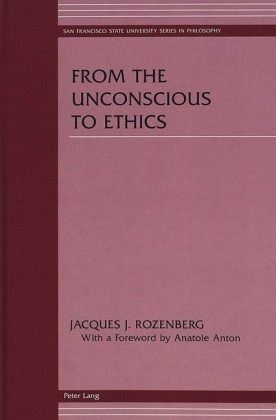Nicht lieferbar

From the Unconscious to Ethics
With a Foreword by Anatole Anton
Versandkostenfrei!
Nicht lieferbar
From the Unconscious to Ethics begins by examining Kant's argument of the incongruent counterparts, its effects on his theory of psychopathology, and its role in the dualism between cognizance and morality. This work also focuses on modern psychopathology, since the latter explores the theorization of those unconscious intentions and acts that lie at the base of all human interrelations. In order to show that human language and ethics possess the same formal structure, this analysis reverts to J. Lacan's theory of a psychoethical constitution, and to E. Lévinas' concept of Otherness. Both hum...
From the Unconscious to Ethics begins by examining Kant's argument of the incongruent counterparts, its effects on his theory of psychopathology, and its role in the dualism between cognizance and morality. This work also focuses on modern psychopathology, since the latter explores the theorization of those unconscious intentions and acts that lie at the base of all human interrelations. In order to show that human language and ethics possess the same formal structure, this analysis reverts to J. Lacan's theory of a psychoethical constitution, and to E. Lévinas' concept of Otherness. Both human language and ethics are built upon the main characteristics of the linguistic sign of arbitrariness and freedom from natural reality. According to Lacan, the logic of speech was revealed at Mount Sinai. This was due to the prohibition against idolatry, which allowed for an alphabetic system of signs, as opposed to the Egyptian hieroglyph. This book promotes a novel transition from the unconscious to ethics and provides modern insights on a variety of topics.



